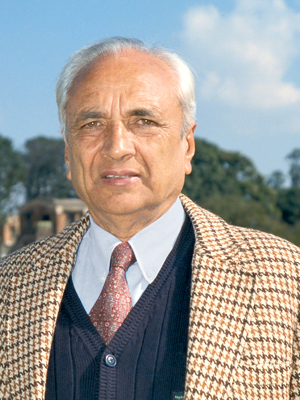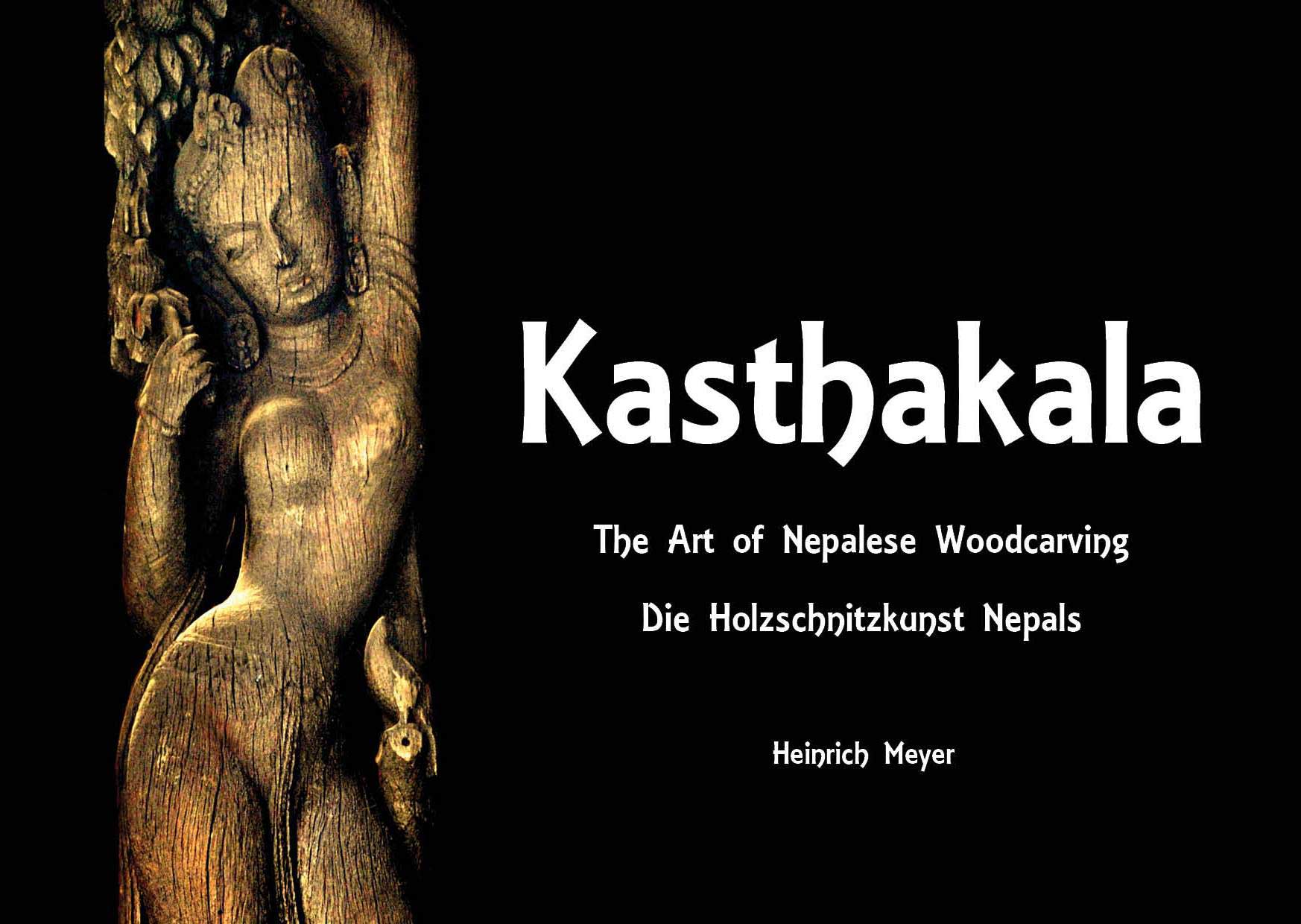Bharat Dutta Koirala, one of Nepal’s most renowned journalists, received the Ramon Magsaysay Award, the “Nobel Prize of Asia, for the year 2002, the result of an illustrious career in journalism going back almost 40 years. In 1965 Koirala joined The Rising Nepal daily as chief reporter. He went on to become the editor and in 38 years as a journalist witnessed – and played a central role in the gradual evolution of Nepal’s media from a few government controlled newsletters to the sprawling ‘free press’ of today.
 A History of Making Change
A History of Making Change
Beginning his journalistic path with a period of strong self-censorship in keeping with existent press rules, Mr. Koirala was concerned that the media law of that time did not allow for much freedom of expression. In fact, the Press and Publication Act, which governed the media during the Panchayat Era, was labeled “the black law” for its stringent censorship and intimidation of scribes. The few private publications such as ‘Commoner’, ‘Motherland’, ‘Samay’, and ‘Dainik’ veered between sensationalism and pro-government propaganda. He realized that in order to truly benefit society, media coverage needed to be revolutionized.
Mr. Koirala was responsible for installing the first web offset machine with computerized typesetting at the Gorkhapatra in 1981, at a time when tedious letter-press machines were the norm.This faster, more efficient printing technique together with well trained journalists under his supervision heralded a new era in the history of The Rising Nepal.
With the restoration of democracy in 1990, freedom of press was introduced in the country. In the Constitution of 1991, Articles 12, 13 and 16 broadly describe freedom of expression, freedom of press and the people’s right to information, respectively. These constitutional rights resulted in the gradual development of an independent press, as investors realized the potential for financial gain and private sector publishing was established.
Frustrated by the futility of trying to communicate by print media via city newspapers and now famous “billboard-style wall newspapers’” with a largely illiterate but appreciative audience, Koirala increasingly focused his hopes on radio. Radios, he noted, are cheap. They run on batteries or solar power and their signals can reach where power lines and delivery trucks cannot. Moreover, he says, the radio “transcends literacy”. Koirala made it his mission to promote locally owned and operated radio stations in rural Nepal. A dozen have succeeded. Meanwhile, leading a consortium of four NGOs, Koirala himself launched Sagarmatha, Nepal’s first private FM radio station. It offers music and public affairs programs and also takes in trainees - a true Koirala touch.
In his long career, Koirala has traveled, researched, and engaged in many projects in community communication supporting poorer and more deprived sections of society. He has linked his efforts to open the media to local communities with those in other countries, becoming Chairman of Worldview Nepal, under the Worldview International Foundation, a media-based organization with its headquarters in Colombo, Sri Lanka,
Koirala’s Work Recognized
The 2002 Ramon Magsaysay Award for Journalism, Literature and Creative Communication Arts is a tribute to Koirala’s selfless service towards his fellow citizens. The award citation recognizes his groundbreaking work in community awareness and education programs. “Still impassioned about bringing information to the rural masses, he encouraged small cities and towns to put up their own newspapers and led the Press Institute to set up branches to train countryside reporters.” It goes on to say, “The urbane Koirala works quietly and always in concert with friends and colleagues. He excels at initiating projects and linking them to funders and then, as one friend puts it, letting them ‘thrive on their own’. Today, his impact reaches far and wide, from the country’s growing cadre of professional journalists to the wall newspapers posted across the hill districts. His diverse initiatives have a common thread. As Koirala says of community radio stations, they are ‘helping create a free, independent, and pluralistic media and promoting public debate in our democracy.’”
The Nepal Press Institute, founded in 1984, said in a recent press release, “Bharat Koirala has transformed journalism and the media landscape in his native Nepal and influenced neighboring countries. He developed the country’s first training course for journalists and relentlessly pursued opportunities to provide ‘development communication’ to the isolated rural masses. Koirala has founded many different organizations to achieve this end, among them the Nepal Press Institute (NPI), the Nepal Forum for Environmental Journalists, and Media Services International” which spear-headed a change in media understanding, as a tool for increased emancipation and knowledge.
An impressive pre-Magsaysay awards list includes the Knight International Press Fellowship Award, the Birendra Aishwarya Seva Padak given by His Majesty King Gyanendra, and the Coronation Medal and Gorkha Dakshinbahu by His late Majesty King Birendra, in recognition for Koirala’s pioneering work in the field of rural communication.
Life and Thoughts Today
These days, Bharat Koirala reads five daily newspapers in a day usually filled with meetings. As Chairman of many organizations such as Centre for Investigative Reporting, Media Services International and Himal Association, and member of the International Board of International Media Support (Fund), Denmark; Circle of Advisors, Panos South Asia; South Asia Partnership; and Nepal Forum of Environmental Journalism, Koirala is an active consultant and advisor in the media and community services. He also writes regular reports and articles for publications and communication organizations around the globe and participates in seminars and discussion forums on their behalf.
A firm follower of the Ba’h’ai faith, which emphasizes the unity of all people and religions, today Mr.Koirala talks about world citizenship and the age of unity. He believes we are at the end of the nation building phase and must step forward into global unity, initiated by peace, acceptance and harmony in families and in turn, in societies, cultures and countries.
In his opinion a good journalist should attempt to develop a world view, free from narrow confines of nationality, gender or religion, which in turn leads to objective observation and unbiased reporting of facts. In fact, he lists accuracy, objectivity, responsibility and lastly compassion as traits an individual should inculcate in order to enter the field of media and communication. Mr. Koirala encourages trainee journalists to be alert and use their senses to feel, see, hear, smell, and taste their environment as an objective observation exercise. A flair for writing as a means of expression and communication is a must, as is a sense of compassion and empathy with one’s subject or situation under scrutiny. A journalist must also be sociable and able to mingle freely with people from any caste, creed or nationality, putting others before themselves in their quest for the most accurate depiction.
Given advice such as this, we can hope for a new generation of journalists that can truly inspire and involve their communities, just as Bharat Koirala has.

A new hangout for cold-pressed juice connoisseurs
Instagram is...










